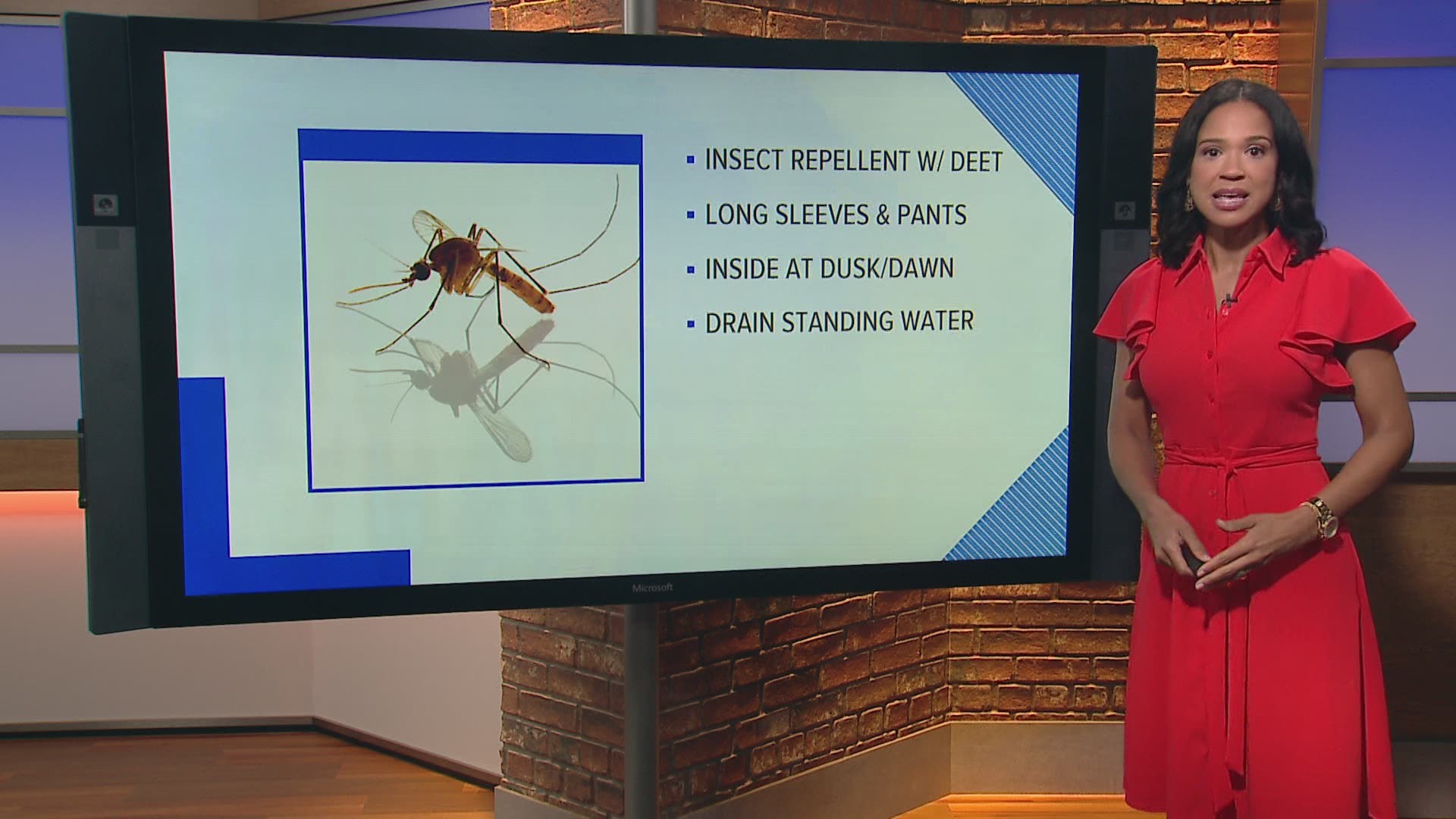FORT BEND COUNTY, Texas — A Sugar Land resident has been infected with the West Nile virus, according to the Fort Bend County health department.
This is the first West Nile virus case reported in a Fort Bend County resident this year. The resident's symptoms are unknown but they're reportedly recovering from the infection.
It's unknown where the exposure occurred.
EDITORIAL NOTE: The above video originally aired July 2.
The Texas Department of State Health Services confirmed the probable case on Thursday. Fort Bend County Health and Human Services has investigated the case as well.
In July, a mosquito tested positive for West Nile virus in Sugar Land. It was found on Morrisons Place in the New Territory subdivision.
"The city will continue citywide spraying twice per week and is working closely with the Texas Department of State Health Services to trap and test mosquitos for the presence of the West Nile virus. The traps supplement the city's larvicide and mosquito spraying operations," the city of Sugar Land said.
West Nile virus has also been detected in several parts of the Houston area, including Harris County.
Humans can contract West Nile virus from a mosquito bite. Infected mosquitoes get the virus from feeding on infected birds. The virus can cause serious illness or death.
Symptoms of West Nile virus may include a stiff neck, vision problems, body tremors, mental confusion, memory loss and seizures. The milder form of the illness is West Nile fever with symptoms that include fever, headache, muscle and bone aches, nausea and drowsiness.
Up to 80 percent of people infected with West Nile virus will have no symptoms and will recover on their own.
Tips to protect you from mosquitoes
Mosquitoes require water for reproduction. The following can help reduce mosquitoes:
- If possible, dispose of water-holding containers, such as ceramic pots, used tires, and tire swings.
- You can also drill holes in the bottom of containers such as those used for plants or recycling.
- Clean clogged roof gutters.
- Turn over objects that may trap water when they are not in use, such as wading pools and wheelbarrows.
- Change water in birdbaths on a weekly basis.
- Clean and chlorinate swimming pools. When pools are not in use, use pool covers and drain when necessary.
- Make sure doors and windows have tight-fitting screens, no holes, and remain closed
- Minimize outdoor activities at dusk and dawn when mosquitoes are most active.
- Wear shoes, socks, long pants, and long-sleeved shirts. Clothing material should be tightly woven and loose-fitting.
- Use mosquito netting if camping or otherwise sleeping outdoors.
- Use Environmental Protection Agency (EPA)-registered insect repellents with one of the active ingredients below. Use mosquito repellents containing DEET, picaridin, oil of lemon eucalyptus, IR3535, or 2-undecanone, and apply according to directions when it is necessary to be outdoors. When used as directed, EPA-registered insect repellents are proven safe and effective, even for pregnant and breastfeeding women.
- When using DEET, use the lowest concentration effective for the time spent outdoors (for example, 6 percent lasts approximately two hours and 20 percent for four hours) and wash treated skin when returning indoors. Do not apply under clothing, to wounds or irritated skin, the hands of children, or to infants less than two months old.

